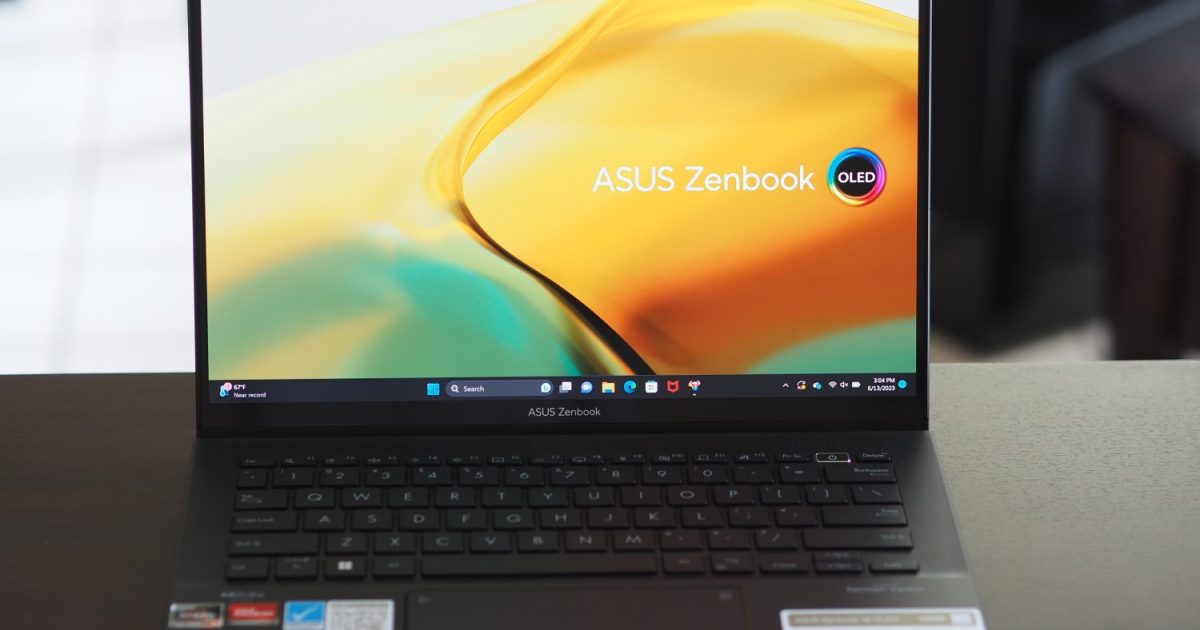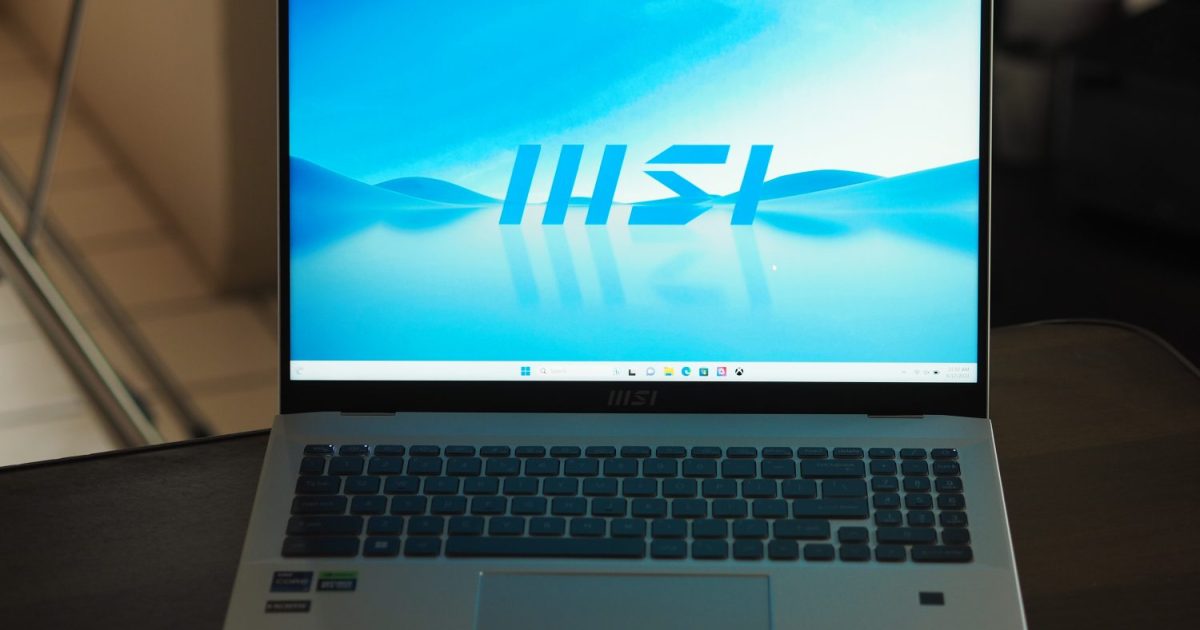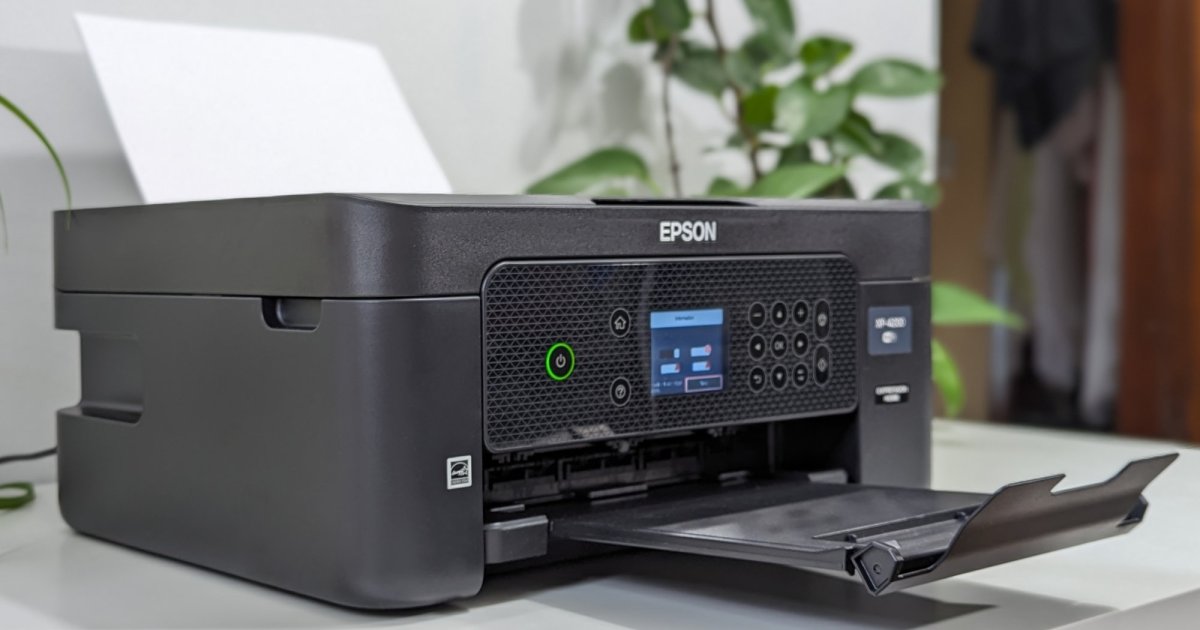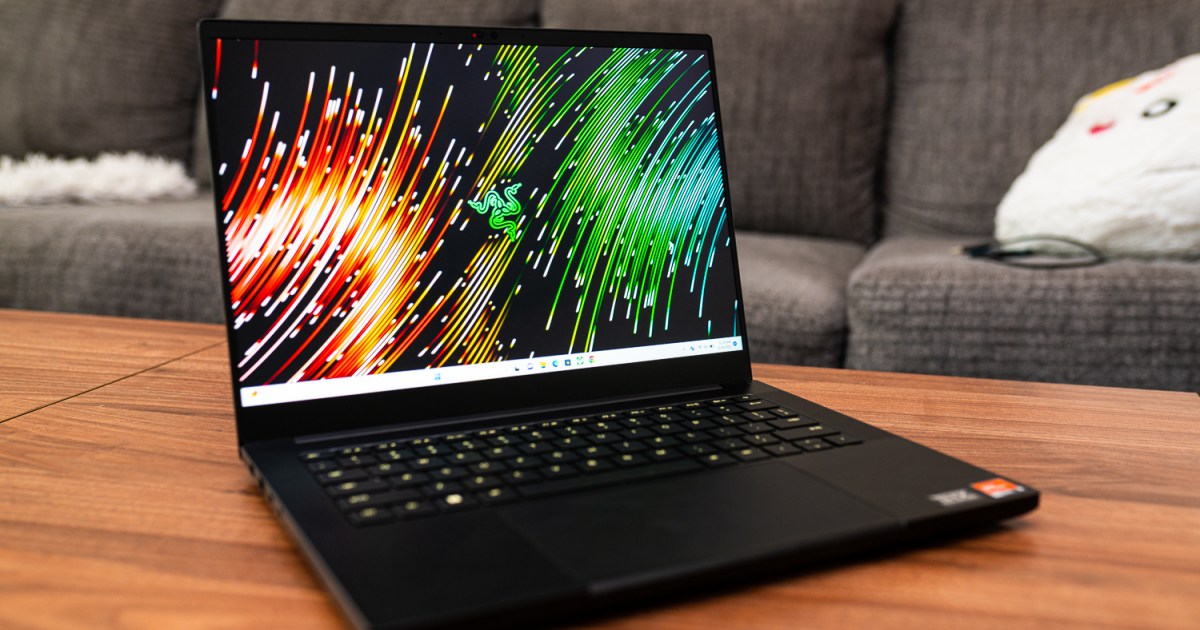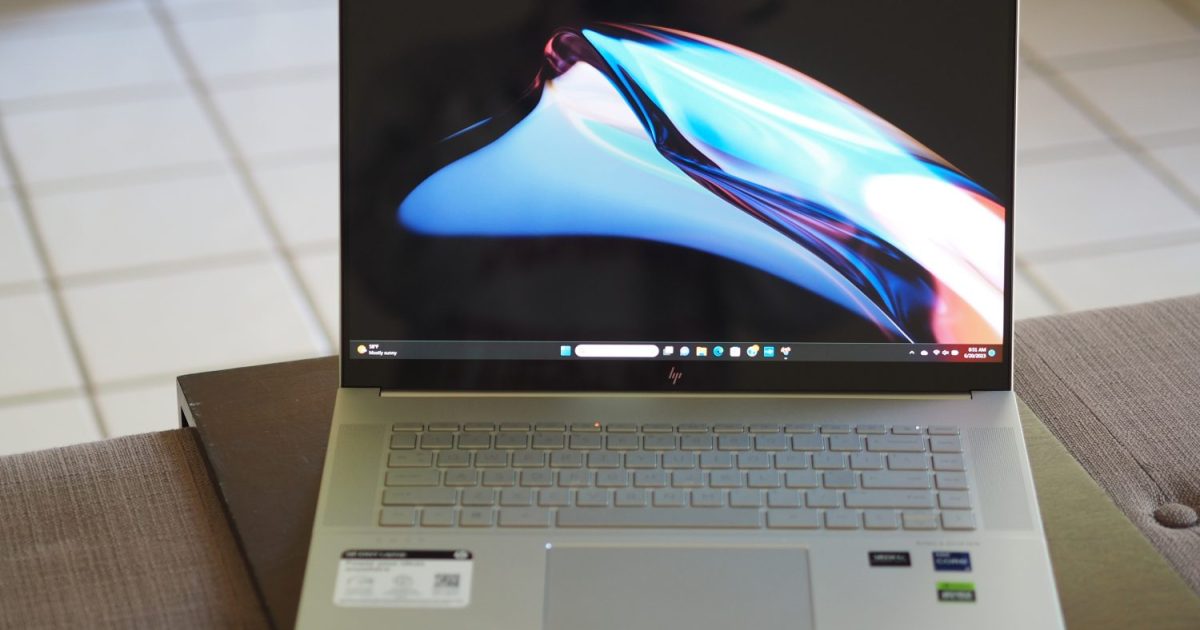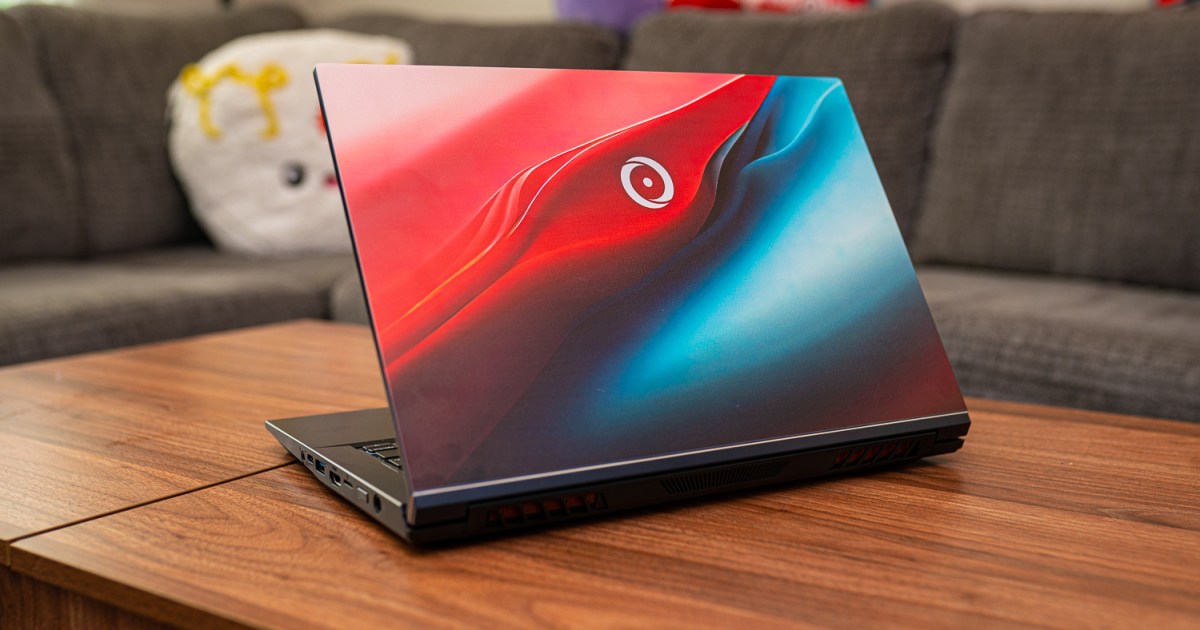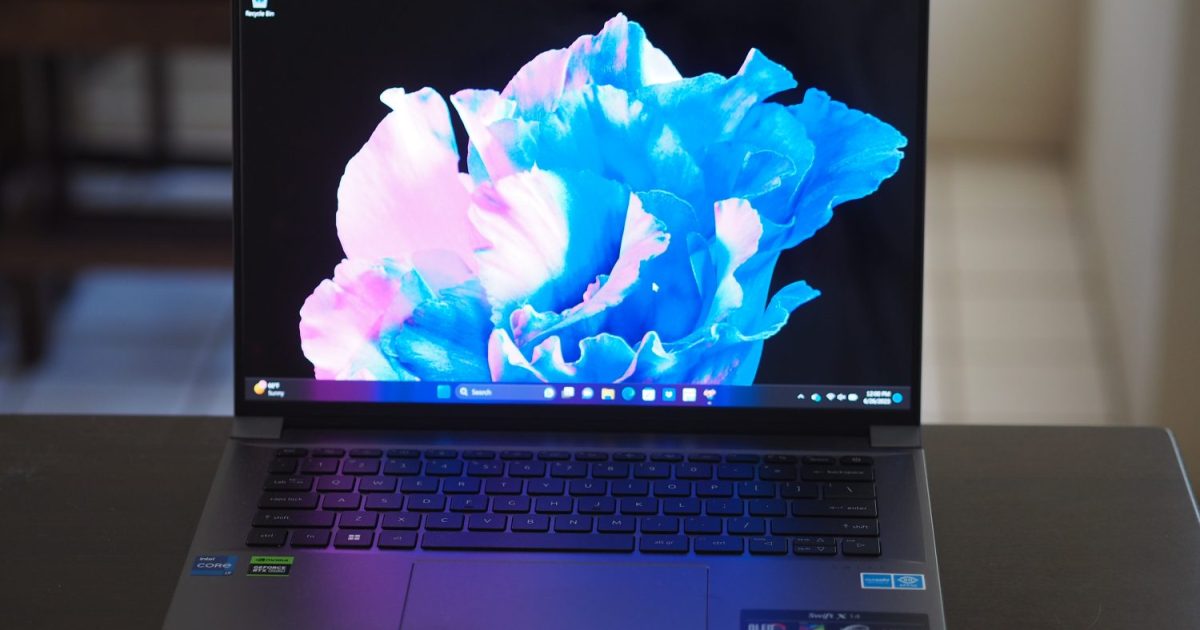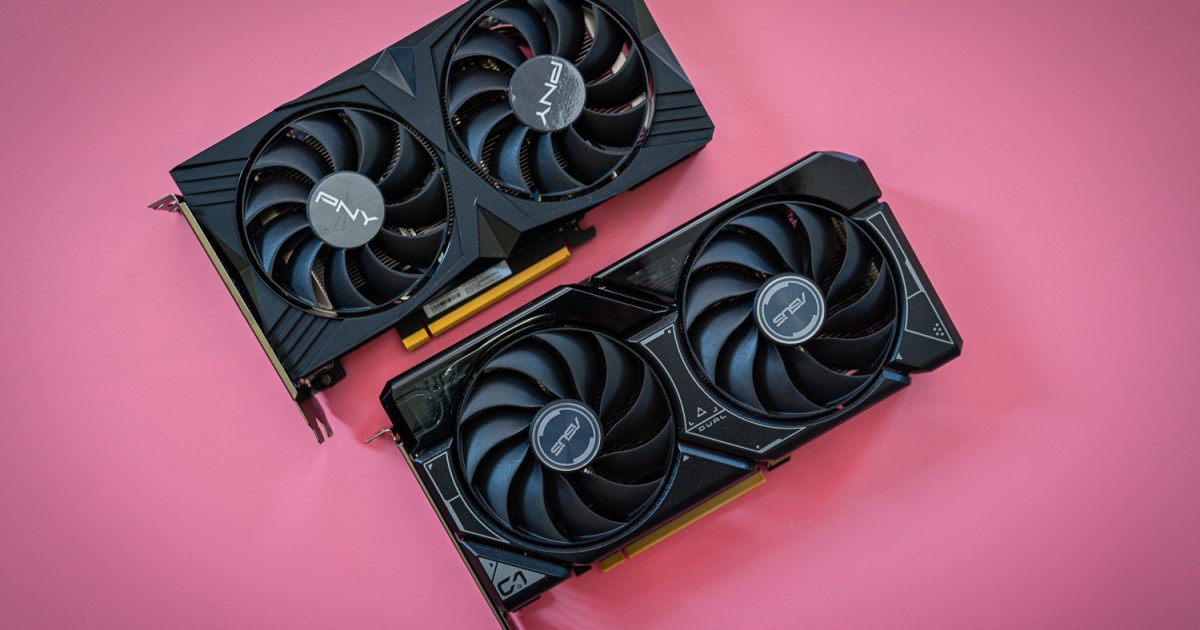The Meta Quest Pro isn’t just another VR headset. It’s a new category of device designed to potentially replace your laptop for work. Despite initial skepticism surrounding the company and its metaverse ambitions, the Quest Pro’s potential as a productivity tool is intriguing. This in-depth review focuses on the core productivity features of the Meta Quest Pro, exploring its strengths and weaknesses in a real-world work environment.
Display and Visual Clarity
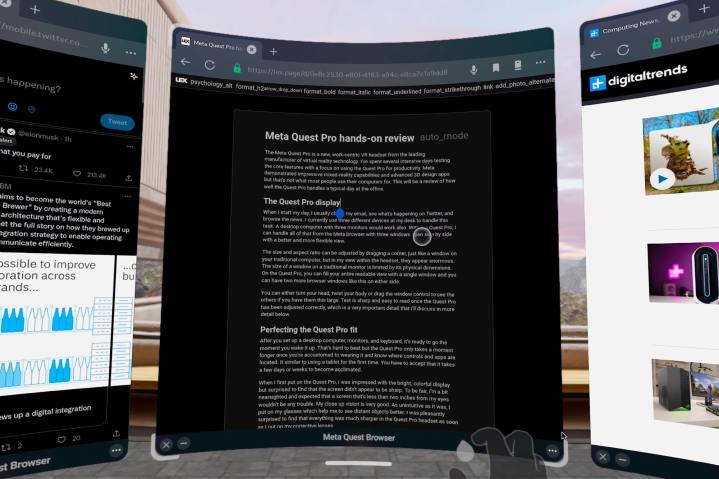
A typical workday starts with checking emails, browsing news, and catching up on social media. Traditionally, this involves multiple devices or a multi-monitor setup. The Quest Pro’s display, however, offers a compelling alternative. Using the Meta browser, three windows can be opened simultaneously, providing a more flexible viewing experience than physical monitors. These windows can be resized and repositioned just like on a desktop, but with the added benefit of seemingly limitless size within the headset’s virtual space.
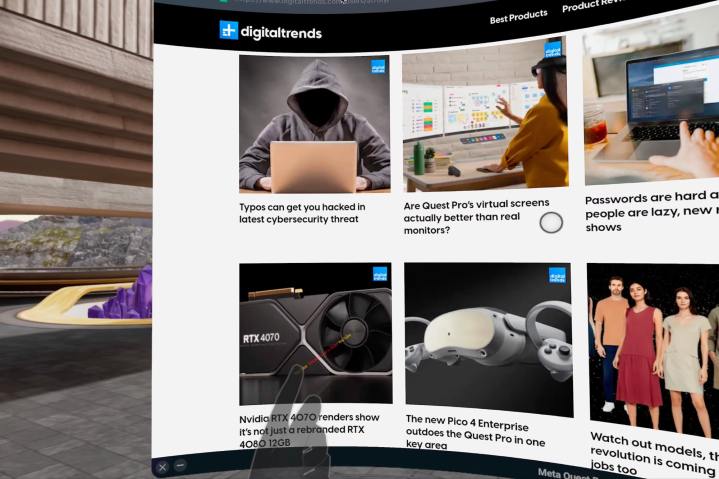
Navigating these expansive windows is achieved through head movements, body adjustments, or simply dragging the window controls. Achieving optimal text clarity is crucial, and the Quest Pro delivers sharp, readable text once properly adjusted.
Achieving the Perfect Fit
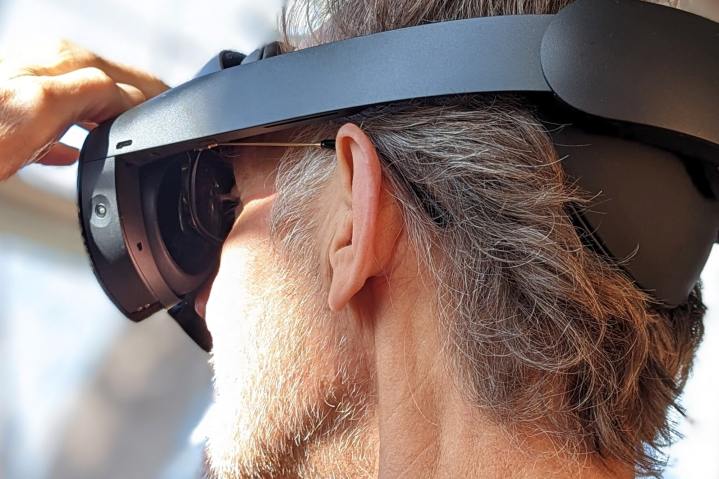
While a traditional computer setup is instantly ready, the Quest Pro requires a brief adjustment period. Like transitioning to a tablet, becoming proficient with the headset’s controls and app locations takes time and practice. Initial impressions of the display, while bright and colorful, might be hampered by blurriness, especially for users with vision correction needs. Surprisingly, wearing prescription glasses can significantly enhance clarity due to the Quest Pro’s unique lens system.
Fine-tuning the fit is key to optimizing the visual experience. The Quest Pro’s eye-tracking technology assists in precise alignment, ensuring the headset sits comfortably and at the correct height. Adjusting the interpupillary distance (IPD) further enhances clarity.
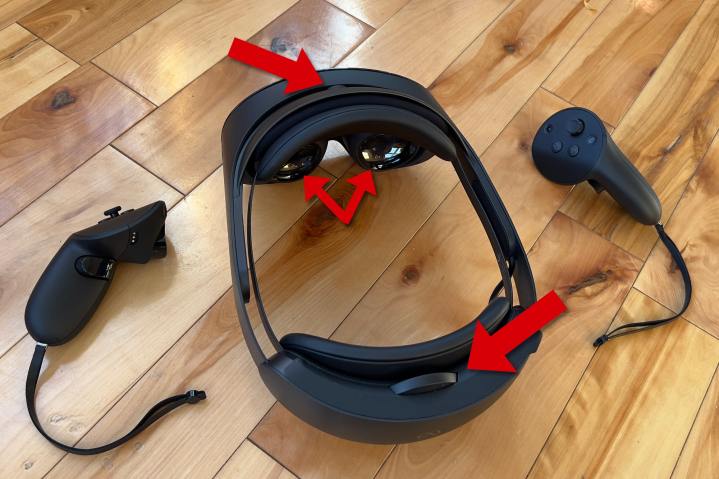
Once properly adjusted, the Quest Pro delivers a crisp, vibrant display suitable for various tasks, including video watching, fitness apps, and casual browsing, even without glasses. For tasks involving extensive reading and text editing, wearing glasses is recommended. The adjustable wheel at the front of the headset ensures comfortable wear with eyeglasses.
Battery Life and Power Management
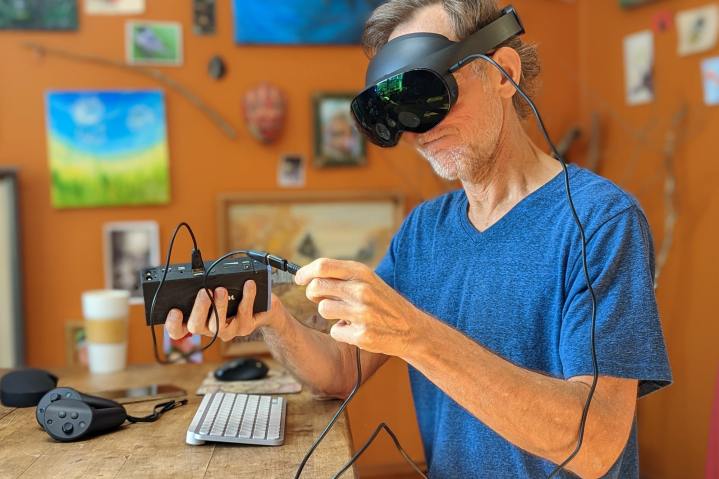
The Quest Pro’s battery life provides approximately two to three hours of work time. The included dock allows for convenient charging during breaks. For extended work sessions, the headset can be used while plugged in or powered by a compatible external battery pack (18W or higher). While the battery life falls short of most laptops, it’s comparable to other standalone VR headsets. Extending the runtime with an external battery is a viable solution.
Performance and Responsiveness
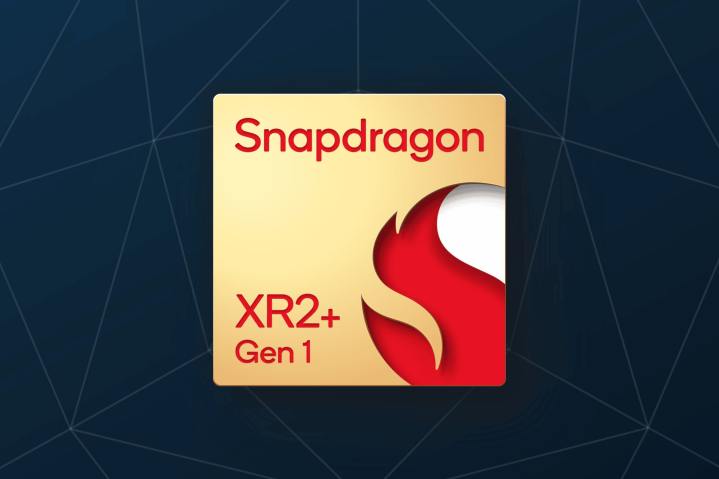
The Quest Pro boasts a Qualcomm Snapdragon XR2+ processor and upgraded memory, promising a significant performance boost over its predecessor, the Quest 2. While benchmark comparisons are limited, BrowserMark tests reveal modest improvements in speed and graphics.
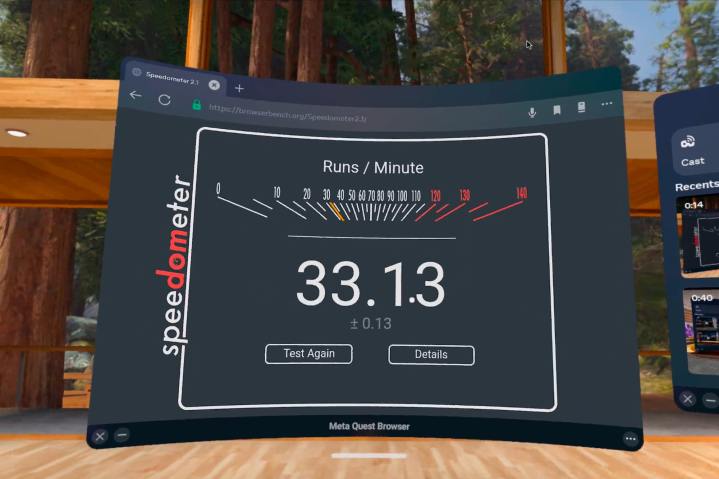
Despite these relatively low benchmark scores compared to laptops, the Quest Pro’s real-world performance feels smooth and responsive during productivity tasks. Software updates have further enhanced performance, bringing it closer to the capabilities of the upcoming Quest 3. The headset handles demanding processes like head tracking, display rendering, and hand tracking efficiently.
Apps: Strengths and Gaps

The Quest Pro’s app ecosystem, while promising, reveals both strengths and gaps. Like the early days of the iPad, the Quest Pro shines with apps that leverage its unique VR capabilities. Gravity Sketch, a powerful 3D modeling app, exemplifies this, offering an intuitive and immersive design experience. Other 3D design tools, including Adobe Substance3D, further solidify the Quest Pro’s potential in creative fields.
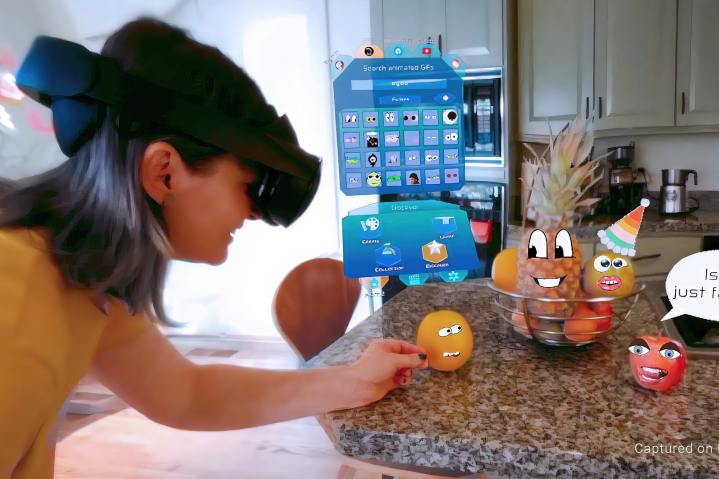
However, essential productivity apps like photo editors and 2D graphic design software are currently lacking. While web-based alternatives like Canva and Pixlr offer temporary solutions, dedicated native apps are needed. Microsoft 365 web apps provide reasonable functionality, while Google Workspace is less optimized. For writers, web-based Markdown editors like Lex offer a viable option.
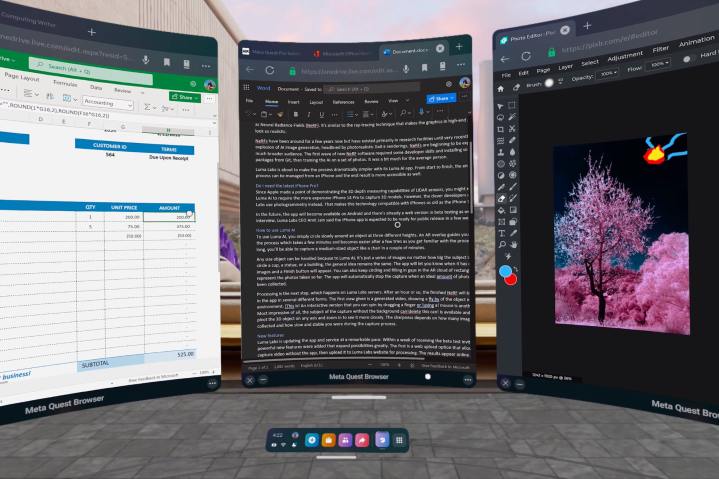
For tasks requiring specific software not available on the Quest platform, connecting to a traditional computer via remote desktop apps is a practical workaround.
Remote Desktop Solutions
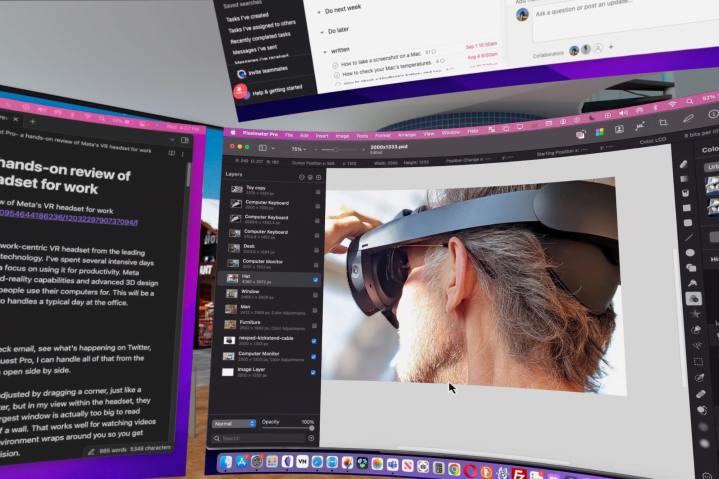
Meta’s Horizon Workrooms provides native remote desktop functionality, allowing connection to Mac and Windows PCs. While functional, it’s somewhat limited in screen customization compared to the flexibility of multiple browser windows. Immersed offers a more versatile alternative, enabling custom screen sizes, resolutions, and even vertical orientations.
Traditional vs. VR Workspaces
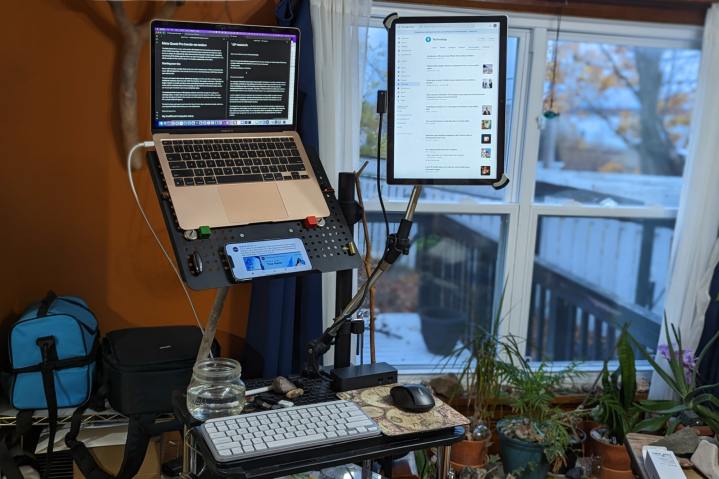
A traditional workspace often involves multiple devices, keyboards, and mice. The Quest Pro, when paired with a keyboard and mouse, offers a surprisingly comfortable and efficient alternative, integrating seamlessly with existing workflows.
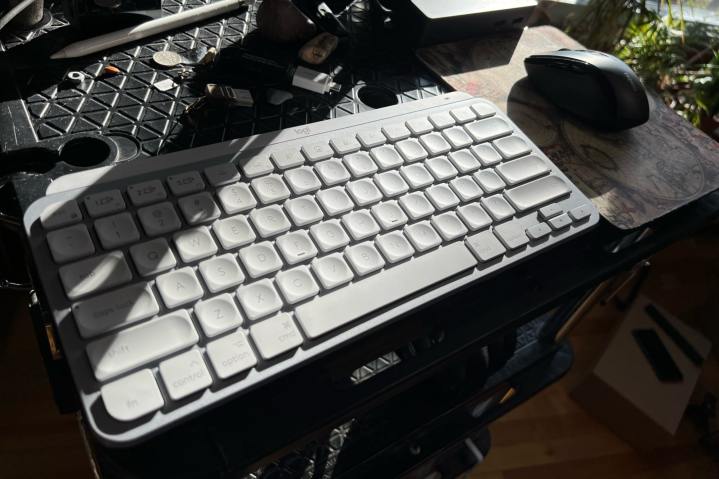
Quest Pro Input Methods
The Quest Pro offers diverse input options, catering to various work styles and preferences. Using a familiar keyboard and mouse provides a comfortable transition for established workflows.
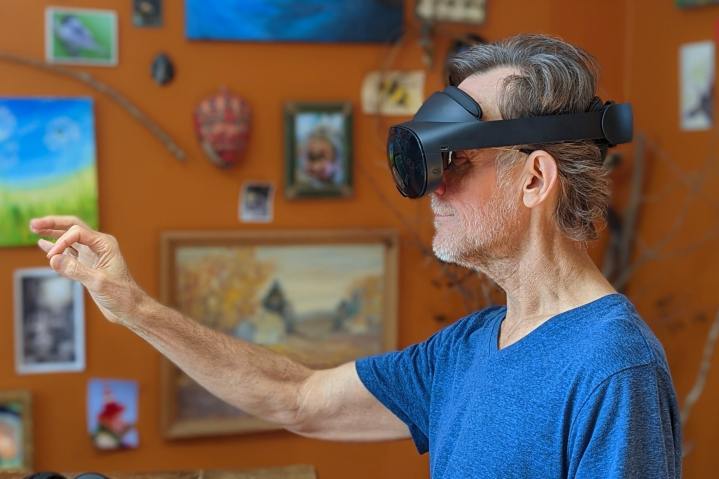
The headset’s hand-tracking and dictation features enable a keyboard- and mouse-free experience, ideal for portability and working in different locations. While hand-tracking offers impressive control, typing on the virtual keyboard remains less efficient than a physical keyboard. The included Touch Controllers provide a more comfortable typing experience, especially for shorter texts and web searches.
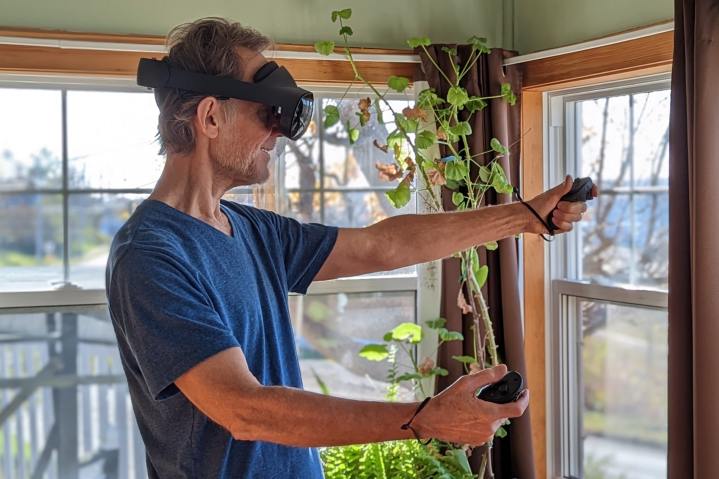
The Future of Productivity?
The Quest Pro represents a compelling step towards the future of computing. While it’s not a perfect productivity solution yet, its innovative features and potential are undeniable. The expanding app ecosystem and ongoing development suggest a promising trajectory. The Quest Pro is a worthwhile investment for those intrigued by VR productivity and willing to embrace this evolving technology. With Apple’s upcoming Vision Pro, the future of mixed reality headsets looks bright, and the Quest Pro offers a compelling entry point into this exciting new frontier.




